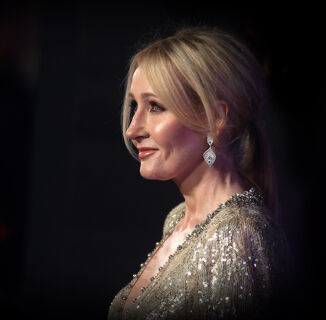In a ruling that sent shockwaves throughout the LGBTQ community and the nation, the Supreme Court has ruled in favor of a baker who refused a wedding cake to a gay couple because of his religious beliefs.
The Masterpiece Cakeshop ruling sets up a narrow win for baker Jack Phillips instead of opening a door for discrimination against protected groups by the nation’s highest court. That because it focuses solely on whether the Colorado Civil Rights Commission violated Phillips’ First Amendment rights.
Colorado State Rep. Leslie Herod carried the reauthorization of the of the Colorado Civil Rights Commission in a months-long battle this year.
“The narrow ruling of the Supreme Court today does not allow businesses to discriminate against LGBT people in goods and services,” Herod told INTO. “Nothing in the ruling today should or will stop the Colorado Civil Rights Commission and Division from protecting LGBT people’s rights to live life free from discrimination in housing, employment and public accommodations.”
BREAKING: SCOTUS reversed the decision in Masterpiece Cakeshop v. Colorado Civil Rights Commission, based on concerns specific to the case.
The Court did NOT rule that the Constitution gives a right to discriminate.
— ACLU (@ACLU) June 4, 2018
The court ruled 7-2 that baker Jack Phillips was within his rights to turn away Colorado couple Charlie Craig and David Mullins. Justices Ruth Bader Ginsburg and Sonia Sotomayor dissented.
The decision hinges on Phillips’s First Amendment rights, overturning decisions from the Colorado Civil Rights Commission and the Colorado Court of Appeals that found Phillips violated the couple’s right to equal accommodations.
“Requiring [Baker] to create a cake for a same-sex wedding would violate his right to free speech by compelling him to exercise his artistic talents to express a message with which he disagreed and would violate his right to the free exercise of religion,” the decision reads.
The court took issue with the Colorado Civil Rights Commission’s characterization of Phillip’s religious beliefs. In the decision, the court quotes a commissioner in who in 2014 said that “to me it is one of the most despicable pieces of rhetoric that people can use… [is] religion to hurt others.”
The court wrote that the Commission had inappropriately dismissed Phillips beliefs as insincere.
But the ruling goes on to say that similar cases still need to play out in the courts and that they must be resolved “without subjecting gay persons to indignities when they seek goods and services in an open market.”
On a national scale, the ruling means that similar commissions deciding discrimination cases must be careful not to show animus toward those with religious convictions.
Ginsburg wrote that the decision missed the point.
“The Colorado court distinguished the cases on the ground that Craig and Mullins were denied service based on an aspect of their identity that the State chose to grant vigorous protection from discrimination,” she dissented.
Paula Greisen, attorney for Mullins and Craig, said her clients lost on a technicality, not on a precedent-setting opinion.
“Obviously they’re extremely disappointed,” Greisen told INTO. “But I certainly think it leaves the door open to say that states or services that want to discriminate against these individuals have a high hurdle.”
Condemnation of the ruling was swift from progressive groups.
“Today’s decision should have been a firm, direct affirmance of longstanding equality law,” said Lambda Legal CEO Rachel B. Tiven in a statement. “Instead, the Supreme Court has become an accomplice in the right’s strategy to hollow out one of its finest achievements, the right to equal marriage, and create what Justice Ginsberg memorably termed ‘skim milk marriages.’”
Camilla Taylor, director of constitutional litigation at Lambda Legal, also points out that the Court of Appeals decision was free of the bias alleged in the Colorado Commission decision.
“It means that we’ll be litigation this again,” said Taylor. “It’s an invitation to the opponents of LGBT equality to keep bringing claims, that requirements that they decline to discriminate violate the First Amendment.”
This 7-2 ruling, while limited, invites discrimination and further efforts to justify withholding service from #LGBTQ people. This will encourage all sorts of mischief by well-funded anti-#LGBTQ organizations who want to create exceptions to nondiscrimination laws.
— Lambda Legal (@LambdaLegal) June 4, 2018
In a statement, Democratic National Committee said the case was never about a wedding cake.
“It was about all people–no matter who they are–having the right to celebrate their love without facing discrimination,” said DNC Chair Tom Perez.
Photo by Chip Somodevilla/Getty Images
Help make sure LGBTQ+ stories are being told...
We can't rely on mainstream media to tell our stories. That's why we don't lock our articles behind a paywall. Will you support our mission with a contribution today?
Cancel anytime · Proudly LGBTQ+ owned and operated
Read More in Impact
The Latest on INTO
Subscribe to get a twice-weekly dose of queer news, updates, and insights from the INTO team.
in Your Inbox













